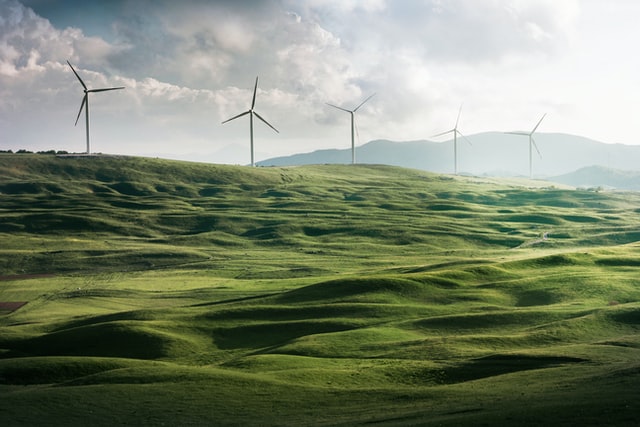Want to Tackle the Climate Crisis? Train as an Engineer
A group of eight professional bodies representing engineering services professions is spearheading a campaign to encourage more young people to take up employment in...
Read Full Article
In green recovery plans, the creation of so-called “green jobs” is a common pledge, but what exactly defines this type of role?
Director-General of The Confederation of British Industry’s (CBI) Dame Carolyn Fairbairn said in September 2020 that the UK must become a global leader in climate action to create new green jobs and lift productivity post-pandemic.
Part of Chancellor Rishi Sunak’s recovery plan to stimulate the economy, announced in July 2020, was a £3 billion green investment package to decarbonise public buildings and minimise emissions from homes. A £2 billion Green Homes Grant was also promised, where homeowners and landlords will be able to apply for vouchers to make their homes more energy-efficient. Both initiatives involve the creation of green jobs, for example, the workforce needed to retrofit buildings to be more energy-efficient and switch to low-carbon heating.
In November 2020 the government also launched the Green Jobs Taskforce to help deliver on the Ten Point Plan for a Green Industrial Revolution.
Much is made of the phrase “green jobs” in environmental and sustainability discourse, but how can we define such roles?
“‘Green’ could refer to reducing carbon emissions to mitigate the effects of climate change; it could also refer to topics on nature and ecosystems, or wider issues around sustainability and resource use."
–Leah Harris
Economist in the Public Policy Analysis Directorate, Office for National Statistics
According to Leah Harris, economist in the Public Policy Analysis directorate of the Office for National Statistics, there is no single, universally accepted, definition for the term ‘green job’ and that there is no single definition of ‘green’ itself.
“‘Green’ could refer to reducing carbon emissions to mitigate the effects of climate change; it could also refer to topics on nature and ecosystems, or wider issues around sustainability and resource use,” she writes.
Indeed, the European Union have their own framework for identifying and defining “green activities”. In order to achieve the objectives of the European Green Deal, a “common language and a clear definition of what is ‘sustainable’ is needed”. This has led to the creation of an EU taxonomy, which establishes a list of environmentally sustainable economic activities.
Sivananth Ramachandran, CFA, Director of Capital Markets Policy, India at the CFA Institute defines the criteria of green activities according to the EU taxonomy:
Harris explains that one definition often used is the Environmental Goods and Services Sector (EGSS) definition, which follows international guidelines from the United Nations. This covers a wide range of activities, from the production of renewable energy to waste removal and recycling to the protection of biodiversity and landscapes.
The International Labour Organization (ILO) also has its own definition of green jobs. They define green jobs as those which “reduce the consumption of energy and raw materials, limit greenhouse gas emissions, minimize waste and pollution, protect and restore ecosystems and enable enterprises and communities to adapt to climate change”.
As Harris explains, even when one of these various definitions has been chosen, it is difficult to find the right data to count the green jobs and to analyse them:
“Many papers choose to combine definitions, based on their specific question and the available data. The sectoral approach to a definition is common because (in part) it’s easier to find data for one sector rather than the whole ‘green economy’”.
To discover more about ONS’ green job definitions, read the full article here.
Picture: a photograph of a green landscape with wind turbines
Article written by Ella Tansley | Published 14 April 2021
A group of eight professional bodies representing engineering services professions is spearheading a campaign to encourage more young people to take up employment in...
Read Full ArticleSince the UK’s first national lockdown, hybrid working has remained a talking point for businesses, and new data reveals which European countries love and hate...
Read Full ArticleAs urban planning development looks to prioritise sustainability moving forwards, commercial properties could also benefit from becoming literally greener. In the...
Read Full ArticleAs Rishi Sunak sets out his departmental spending, new fiscal rules and public service plans – what are the main takeaways for the commercial property...
Read Full ArticleESG risk management provider Alcumus has launched a first of its kind, standards-based ESG product solution for businesses. This comes as the UK Chancellor sets new...
Read Full ArticleFollowing the Heat & Buildings Strategy publication, here are the latest reactions from the building services industry. The government is set to drive down the...
Read Full ArticleRinnai’s Chris Goggin concludes his look at the progress of the major European economies in their deployment of hydrogen. In the second part of a two-part...
Read Full ArticleRinnai's Chris Goggin offers guidance on future international and continental energy proposals, that will likely affect the UK commercial market. The UK is...
Read Full ArticleAfter a two-year hiatus, The Festival of Sustainable Business returns to the Bristol Hotel on 21 September 2021. With sustainability high on the corporate agenda and a...
Read Full ArticleIn a quest for a more sustainable London this Plastic Free July, Covent Garden is making inspiring changes within its facilities. Brands including Aesop, DECIEM,...
Read Full Article